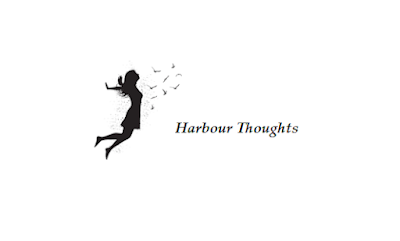Saturday Afternoon
By Emily Dickinson
From all the jails the boys and girls
Ecstatically leap, —
Beloved, only afternoon
That prison doesn't keep.
They storm the earth and stun the air,
A mob of solid bliss.
Alas! that frowns could lie in wait
For such a foe as this!
Poem Analysis:
Emily Dickinson’s poem Saturday Afternoon presents a vibrant and poignant depiction of the joy and freedom children experience when released from the confines of routine, contrasted with the sobering reality of life's restraints and disappointments. The poem is a compact yet rich exploration of themes like liberation, innocence, and the inevitable clash between joy and adversity.
Structure and Tone
The poem consists of two quatrains with alternating lines of iambic tetrameter and iambic trimeter, a common structure in Dickinson's work. This rhythmic pattern mirrors the balance between the exuberance of freedom and the underlying tension that Dickinson hints at. The tone shifts from celebratory in the first stanza to a more somber and reflective one in the second, underscoring the transient nature of happiness.
Theme of Liberation
The opening line, "From all the jails the boys and girls ecstatically leap," metaphorically compares schools or other restrictive institutions to prisons. Dickinson vividly captures the unrestrained joy of children as they escape these “jails,” emphasizing their ecstasy with the word leap. This liberation is not just physical but also emotional and psychological, a pure moment of release.
Dickinson’s choice of the word ecstatically underscores the intensity of their happiness. This is a moment of unbridled bliss, marking Saturday afternoon as a sacred time of freedom when societal or institutional constraints momentarily cease.
The Paradox of Freedom and Constraint
The phrase "Beloved, only afternoon / That prison doesn’t keep" suggests the fleeting nature of this freedom. The afternoon stands as a brief sanctuary, a liminal space where children can escape life's rules and obligations. However, the temporality of this moment is crucial—prison will return, whether in the form of school, societal norms, or the eventual realities of adulthood.
This paradox between freedom and confinement runs throughout the poem, hinting at the inevitability of restrictions in life. Even within the ecstasy of the afternoon, there is a recognition that this joy is temporary.
Innocence as a “Mob of Solid Bliss”
The second stanza shifts to an almost surreal portrayal of children as a mob of solid bliss. The juxtaposition of mob, typically associated with chaos and unruliness, with the pure and immovable solid bliss creates a striking image of innocence and vitality. Dickinson elevates the children's joy into something powerful and almost unassailable.
Yet this joy is fragile. The line "Alas! that frowns could lie in wait" foreshadows the challenges and disillusionments that lie ahead. The word foe at the end of the stanza underscores the adversarial nature of the world against this innocence. Even as the children revel in their freedom, life’s realities—the “frowns”—are ready to encroach upon their happiness.
Dickinson’s View of Joy and Reality
Dickinson often examines the fleeting nature of joy and the inevitability of suffering, and this poem is no exception. Here, the children’s momentary freedom and bliss are emblematic of a larger human experience—the desire for liberation and the inevitability of constraint.
The frowns that lie in wait are not just literal disapprovals but symbolize the greater struggles, expectations, and disappointments that await as children grow older. The mob of solid bliss may briefly overpower the world, but it cannot last; the forces of reality are relentless.
Imagery and Language
Dickinson employs simple yet evocative language to create vivid imagery. The use of storm the earth and stun the air conveys the intensity of the children’s energy and their almost cosmic impact on the world around them. These phrases elevate the mundane release from school into a moment of transcendence.
The diction of the poem, with words like ecstatically, beloved, and bliss, conveys joy and reverence, while words like prison, frowns, and foe add an undertone of constraint and adversity. This interplay between light and dark, joy and sorrow, is characteristic of Dickinson’s poetic style.
Saturday Afternoon is a masterful exploration of childhood joy and the inevitable tension between freedom and constraint. Dickinson captures a universal moment of release and delight, yet she subtly layers the poem with a melancholic awareness of life’s restrictions. The poem serves as a poignant reminder of the transient nature of innocence and the complexities of human experience.
Through her vivid imagery and nuanced language, Dickinson invites readers to reflect not only on the exuberance of freedom but also on the forces that seek to diminish it, making this poem a timeless meditation on the human condition.
